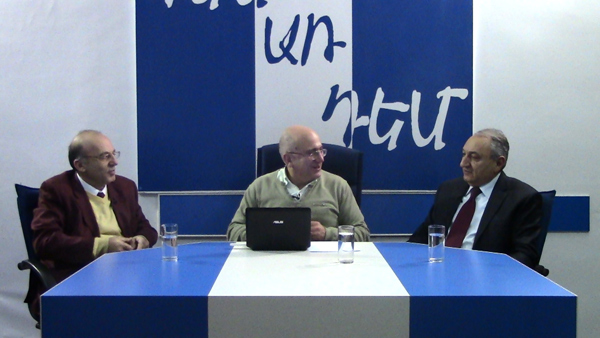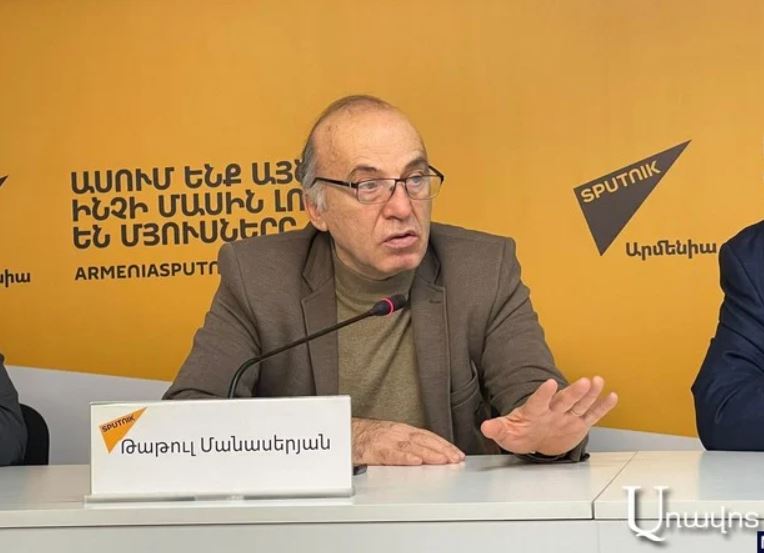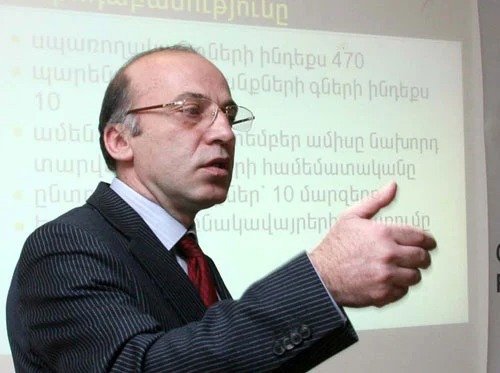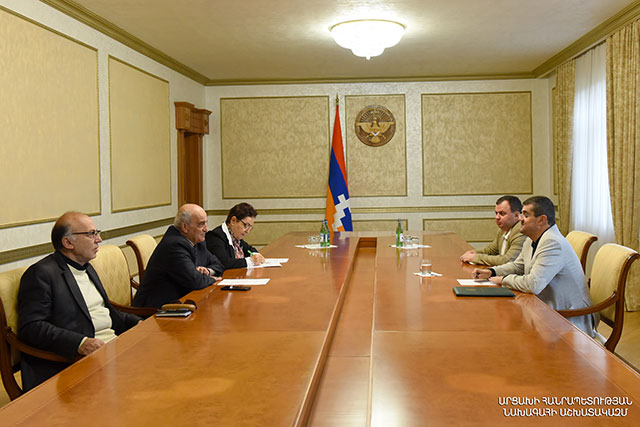In Face to Face talk show of Aravot online, Vardan Bostanjyan and Tatul Manaseryan, Doctors of Economics are discussing the issue of what economic consequences will bring the Custom Union accession.
Aram Abrahamyan – Do you remember one of Murphy’s laws: there is no situation that can not be deteriorated? Now, the economic situation is bad, but is it possible that the situation will worsen due to the Customs Union?
Vardan Bostanjyan – I strongly believe that such a thing is not possible, because the situation is so bad that nothing bad ever happens, and no matter the Customs Union has vulnerable spots, I want to express my persuasion that it will be much better than our today’s situation.
Tatul Manaseryan – It is very important to see that, firstly, the Customs Union and the Free Trade Area are two different levels, and forming a Customs Union without establishment of a Free Trade area and bringing up Armenia’s economy, for me, as an economist, some questions are still open. If you remember, the Free Trade Area, the agreement of which was signed in St. Petersburg two years ago, had some exceptions for some commodities. These were cigarettes, tobacco, and similar products in the Republic of Armenia. While for Russia, Kazakhstan and other countries, such strategically important products like gas, oil, iron, timber and so on were among exceptions.
Read also
A. A. – In other words, we were not properly considered right from the beginning.
T. M. – Right from the very beginning there was discrimination. I would not say they considered us badly, we have protected us badly. In general, I should not say that Russians, Kazakh, and Belarus treated us badly, rather than we did not behave good, we were unable to properly manage negotiations. As a result, I think, however, it put it roughly, there is a place of deterioration, but there is also an opportunity for improvement; it depends only on us. The work that will be done by us, and the grace that we will display during the negotiations can result in improvement.
A. A. – It seems that our government failed to display an individual talent and grace when singing the gas agreement. Are there guarantees that they will display such grace?
V. B. – I am strongly bound to think that we do not have an alternative, most likely, it should be. Under these terrible conditions of horrible and frontal monopoly and corruption risks in the Republic of Armenia, the enterprises, apart from commitments before the state defined by the law, are also conducting illegal, informal commitments, which, actually, result in a lot of difficulties in their activities. In such a case, to pursue at least somewhat profit, they are obligated to raise prices. I think that being involved in this Union monopolization factor or corruptions would be notably decreased, partly, if not by 100 percent.
A. A. – They say that Russia is a cap-a-pie corrupt country. Aren’t they interested in us to become transparent?
T. M. – It seems to me that in some issues it should be beneficial for Russia to be in the same Union with countries having relatively favorable condition than they. For example, when the very Association Agreement was ready, it did not accept it easily, quite major changes were made. It would be very beneficial for Russia, where it is consistent with its interests, roughly speaking, to invite Armenia to the stage, to present as a more transparent, progressive, a successful country.
A. A. – GSP+ trade regime is functioning in Armenia since January, which imposes 0 or very low customs duties over about 6 million products exported to EU. Is it possible for the EU to reconsider it? If by joining the CU, you are increasing the customs duty by 1.5-2, then we are also increasing.
V. B. – Of course, it is possible, but let the so-called privilege status of those 6 million products does ever not become deceptive. It is clear that the great powers are superpowers, that an undiscovered battle is going on of how their scopes will be expanding and enlarging. This is the option when lavish promises are made, but economically if you are thinking that in terms of production culture the Republic of Armenia has such production culture that will produce commodities that Europe would like to have them with excitement, there would never be such a thing. Because penetration to these markets, even if we had such commodities, is a terribly difficult task.
Prepared by ARAM ABRAHAMYAN
“Face to Face” talk show is implemented by the Open Society Foundations-Armenia. The views and analyses found in this transmission express the opinion of the participants and are not approved by the Open Society Foundations-Armenia or its Board. The preparation of the transmission is made possible by the financial support of the Open Society Foundations – Armenia, within the mass media support program, grant N18624.





















































